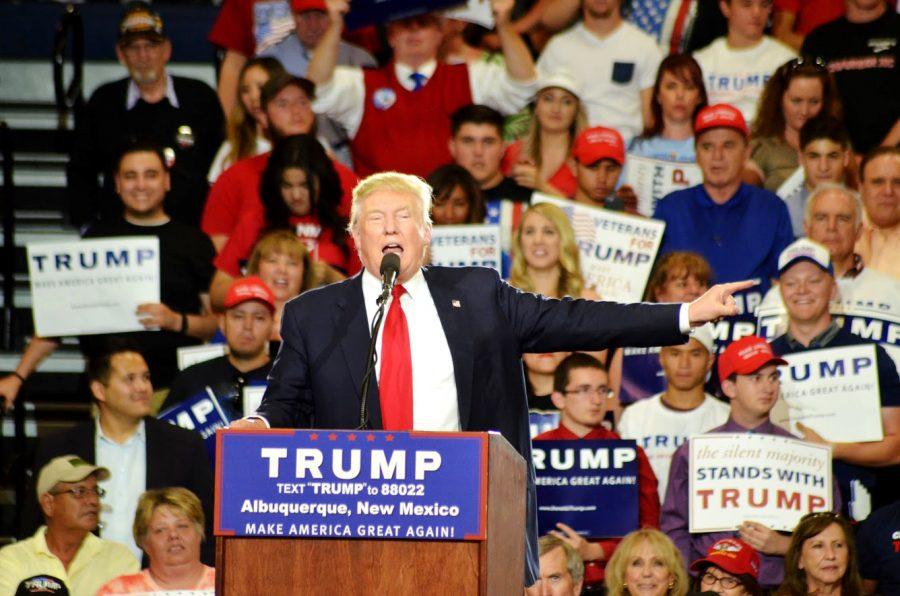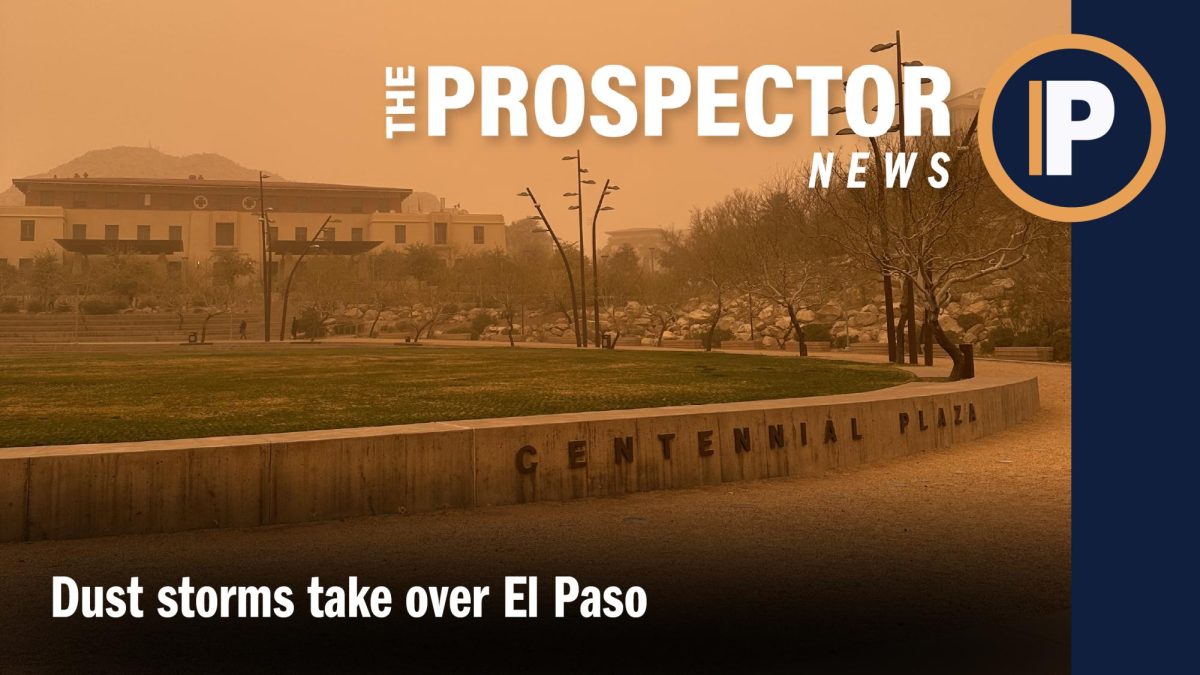Donald Trump’s record with Latino voters is dismal to say the least, and his recent visit to Mexico to speak with President Nieto is seen by some as an attempt to bring in the undecided voters or Republicans who are apprehensive about Trump’s temperament. After his visit, Trump visited Phoenix, Ariz., to lay out his platform on immigration and erase the media conjecture that he has softened his stance.
During the press conference with President Nieto, Trump’s rhetoric was vastly different than his announcement for president in the Trump Tower, where he said that “Mexico is not our friend, believe me.” Instead, when standing next to the Mexican president in Mexico City, Trump said that “the bond between our two countries is deep and sincere.”
Later that day in Phoenix, Trump’s immigration speech spoke not of two nations cooperating to achieve a common goal, but of a wave of dangerous Mexican immigrants, who cost billions, spread crime, drugs and guns, and drain welfare funds while taking jobs away from American citizens.
There is a marked difference in language that Trump uses when talking to his die-hard followers and when trying to capture the undecided voters’ confidence. The rhetoric used when talking to the in-crowd, those who understand his euphemism when he claims that “not everyone who seeks to join our country will be able to successfully assimilate,” is not a new phenomenon. But, as Josiah Heyman, director of the Center for Inter-American and Border Studies, explained in an email, one rooted in our nation’s history.
“We are in a period of xenophobic reaction to large-scale cultural and social change, which includes immigration,” Heyman said. “It resembles the “know-nothing” anti-Catholic, anti-Irish reaction of the 1840s, the expulsion of Chinese and other Asians in the late 19th century, eugenic racism in the 1910s and 1920s against many groups of Europeans, and internal racism against African Americans.”
If this is true, then it shouldn’t come as a surprise that prominent white nationalists such as David Duke, former Ku Klux Klan leader, and Jared Taylor, who insists he is a “white advocate,” loved his speech. After Trump’s immigration speech, Duke exclaimed on Twitter that Trump made “an excellent speech,” and Taylor tweeted that his speech was a “hell of a speech. Almost perfect. Logical, deeply felt, and powerfully delivered.” One of the distinct aspects of Trump’s campaign is the support he has received from white nationalists. The Washington Post reported that Trump’s campaign has been a recruiting tool for the Klu Klux Klan and that Rocky Suhayda, chairman of the Nazi Party, said Trump is providing a “real opportunity” to build their movement.
During his immigration speech, Trump emphasizes the need for immigration reform to be the primary focus of the government. Trump promised not only his infamous wall, but also guaranteed that the undocumented living in the United States will not know a moment’s rest if he were to become president.
He called for visa caps and for the ability “to choose immigrants based on merit, skill and proficiency” that includes an “ideological certification to make sure that those we are admitting to our country share our values.”
“The United States indeed does need to look at our legal immigration policy—numbers of visas, criteria, etc.,” wrote Heyman in response to Trump’s criteria. “Our needs, with an aging population, include workers of various types, such as unskilled service workers as well as high-skill professionals and service workers. This sort of language may be a code for rejecting immigrants from Latin America.”
Trump’s asserted reasoning for his extreme immigration policy depends on exaggerated or outright false accusations about undocumented immigrants.
He stated that undocumented immigrants cost the country more than $13 billion per year. That figure is from the Federation for American Immigration Reform, an anti-immigrant organization that tallies legal children’s educational and health costs, who have one parent who is undocumented. The Institute on Taxation and Economic Policy, a nonprofit, non-partisan research organization, calculated that in 2016, undocumented immigrants actually paid $11.64 billion in taxes into the economy.
Trump also claimed that immigrants were responsible for “countless American lives being stolen.” When in fact, Latin immigrants have a far lower chance of committing a crime compared to non-Latino documented citizens. According to the National Bureau of Economic Research, native-born citizens are five times more likely to be incarcerated for a crime.
“We can definitely prove that immigrants from Latin America have lower crime rates, better health behaviors and many other positive characteristics. During the period of increasing immigration to the U.S., the crime rate has gone down impressively,” Heyman said.
The FBI’s own research concludes that from 1990-2013, while the number of undocumented immigrants went up from 3.1 million to 11.2 million, the violent crime rate fell by 48 percent.
As for Trump’s claim that immigrants are on welfare, well, they don’t qualify. Even a legal immigrant has to wait five years before they can request public benefits.
His primary solution, a giant wall standing 40 feet high that spans across the 2,000-mile border, is a drastic solution to an exaggerated problem.
“The idea of a perfectly controlled, perfectly sealed border is a clear, obvious and compelling symbol of walling off change,” said Heyman.
In spite of his misinformation and inflammatory rhetoric, or perhaps because of it, Trump has decreased Clinton’s lead in the polls. RealClearPolitics.com reports that Clinton now only leads by 3.9 percent, whereas last week Clinton lead by 6.3 percent.
This may be due to Clinton’s never-ending email scandal. Recently, the FBI uncovered 30 more deleted emails that contained information relating to the Benghazi incident.
As the media highlights her private server usage, mishandling confidential information and the relationship between the Clinton Foundation and her position as Secretary of State, the elusive, undecided voter just might lean toward Trump. For now, anyway.
Christian Vasquez may be reached at [email protected].





